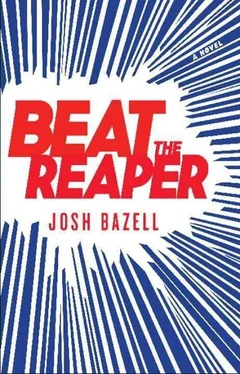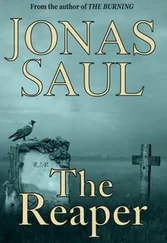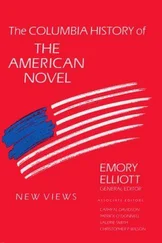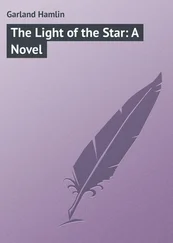Eventually you get back on the bus and go to Birkenau, the death camp. (Sorry— Brzezinka. In Poland “Birkenau” doesn’t appear in print either.) There, in the vast Roman-bath ruins of the death factory, even the Europeans cry. The sadness over that place is practically something you can hear, a scraping feeling that comes in through your ears.
Finally the tour guide finds each one of you and taps you on the shoulder, and says softly that you’re going back to Kraków.
“But we’re stopping at Monowitz?” you say.
She says she’s not familiar with “Monowitz.”
“Monowice,” you say. “ Dwory. The I. G. Farben camp. Auschwitz III.”
“Oh. We do not go there,” she says.
“Why not?” you say. Half the people who survived Auschwitz were enslaved at Monowitz. Not just your grandparents: people like Primo Levi and Eli Wiesel.
“I’m just the tour guide,” she says.
Ultimately you threaten to walk if they won’t drop you off, and she takes you up on it. You find the road and follow it for half an hour. You reach a barbed-wire gate—a new one, with actual guards with machine guns. One of them tells you that visiting is by “special permission only.”
Looking past him, you see why. Monowitz is pumping soot into the sky right now. It’s still operating, and has never been shut down. [25] I. G. Farben, the chemical company that ran the labor camp at Auschwitz—it isn’t named after a person, it’s short for “International Dye Company” in German—stayed in business after the war by claiming it needed to pay reparations to its former slaves, of whom it had used 83,000 at any one time. It then went on to portray itself for decades as being unfairly hounded by greedy, vengeful Jews. In 2003 it found itself on the verge of being forced to actually pay out two hundred and fifty thousand dollars (total, not per person), and declared bankruptcy instead. But not until it had spun off Agfa, BASF, Bayer, and Hoechst (now half of pharmaceutical giant Aventis), all of which prosper to this day.
After talking with the laughing guards at the gates, you walk back to Auschwitz to get a cab, with your nails cutting the skin of your palms.
Back in Kraków— Holy shit! The Smurfs built a medieval village on a hill! And it still looks great, as finely detailed as a clock, because the Nazi governor of Poland lived in the castle and protected the buildings! —I had dinner in a Kommunist-era Koffee House with a wood-burning stove, then went to the back to read through the giant, ancient phone book.
Every customer in the place seemed to have prehensile lips and a conspicuous lack of teeth, and the ones I could overhear were complaining about things it looked like they had good reason to complain about. I realized with a start that I might have just passed Władysław Budek.
I’d always pictured Budek as an aged Claus von Bülow: a smirking, unrepentant lion with a Luger in the pocket of his smoking jacket. But what if he was just some shuffling dipshit, with his bottom eyelids hanging inside out and a plastic pillbox with the days of the week written on its different compartments? What if he was too deaf and senile to even understand what I’d be accusing him of?
What was I going to do, shout “ YOU WERE AN EVIL FUCK FIFTY YEARS AGO ”? Or “ YOU PROBABLY STILL ARE, THOUGH IT LOOKS LIKE YOU DON’T HAVE THE ENERGY TO DO ANYTHING ABOUT IT ”?
Well, I was about to find out. I felt the spark in my fingers before my eyes even processed the image: Budek’s address was listed, six blocks away.
It was the top floor of a townhouse in a row of townhouses that backed onto a long narrow park with a private gate. I considered entering through the park and going in through the back, but before I knew it I was up the steps and had rung the twist-type bell.
Sweat appeared all over me, like all the water in my body was trying to form a shadow version of me and run off. I told myself to calm down, then gave up on that. Why bother?
The door opened. A wizened face. Female. Or at least the housecoat was pink.
“Yes?” she said, in Polish.
“I’m looking for Władysław Budek.”
“He isn’t here.”
“Slowly, please,” I said. “My Polish is bad. When do you expect him?”
She studied me. “Who are you?” she said.
“I’m an American. My grandparents knew him.”
“Your grandparents know Władys?”
“Yes. They did. They’re dead now.”
“Who were they?”
“Stefan Brnwa and Anna Maisel.”
“Maisel? That sounds Jewish.”
“It is.”
“You don’t look Jewish.”
I had the feeling I was supposed to say “Thank you.” I said, “Are you Mrs. Budek?”
“No. I am Władys’s sister, Blancha Przedmieście.”
Things became suddenly surreal. I had heard about this woman from my grandparents. Legend had it she had spent the war simultaneously fucking a Nazi and a man whose wife had connections to the Jewish underground, and had thereby made her brother’s scheme possible.
She said something I didn’t understand. “Excuse me?” I said.
“I am very well known to the police,” she repeated, more slowly.
“Why would you need the police?”
“I don’t know. You are American.”
Good answer. “Can I come in?” I said.
“Why?”
“Just to ask you some questions about your brother,” I said. “If you don’t like them, you can call whoever you want.”
She considered. Jew-hating may be a primordial cracker urge, but loneliness goes back to the amoeba. “Fine,” she finally said. “But I won’t feed you. And don’t touch anything.”
Inside, the apartment was musty but uncluttered, with boxy sixties furniture and a television with a bulging screen. A couple of side tables held framed photographs.
One was of two young people in front of an ivy-covered stone wall: a woman who might have been this one and a bleak-looking black-haired man. “Is this him?” I asked.
“No. That is my husband. He died when the Germans invaded.” Using a series of words and hand gestures she indicated that this was because her husband had been in the horse-drawn artillery, and the Germans had used airplanes. “Władys is here,” she said, pointing.
This one was a flip-looking blond man on skis on a mountaintop, laughing bucktoothed in the sunshine. “He was a beautiful man.” She seemed to be daring me to contradict her.
“You say ‘He was.’ Is he dead?”
“He died in 1944.”
“In 1944? ”
“Yes.”
“What happened?”
She smiled bitterly. “Some Jews killed him. They came in through the window. They had guns.”
It took me a while to understand what she said next. Apparently the Jews she was referring to had tied her up in the kitchen and shot her brother in the living room, near where I was standing at the end of the couch. They had used a pillow so no one would hear.
“But the police were already on their way,” she said, “and they caught them going out.”
“Wow,” I said.
So someone had gotten here first. By a fairly healthy margin.
“It was a boy and a girl,” she said. “Teenagers.”
“Excuse me?” I said.
She repeated it.
“Are you joking?”
“What do you mean?” she said.
I felt nauseated. I sat down on the couch in case it showed and she tried to throw me out.
I needed more information. “What did they look like?” I said.
She shrugged. “Like Jews.”
I tried another tack. “Why were the police on their way?”
“What do you mean?” She sat down on the armchair, but on the edge of its cushion, with good posture, like she was prepared to lunge for the phone at any moment.
Читать дальше










